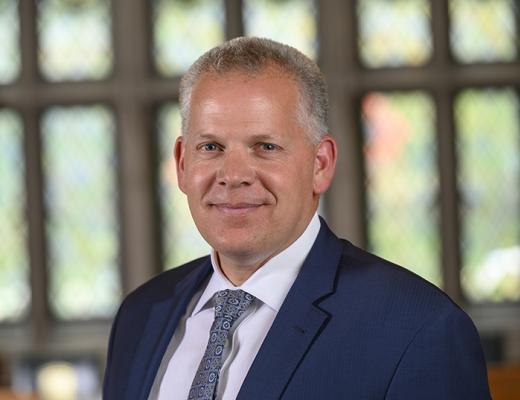Educational Outreach Center expands to reach more students

Image via University of Pittsburgh
Joe McCarthy, the vice provost for undergraduate studies.
March 16, 2022
Pitt is looking to positively influence and engage the next generation of college students through its new program, the Educational Outreach Center.
The center, which opened in January, aims to strengthen the University’s relationship with underserved high schools in the Pittsburgh area. It will build upon a variety of programs such as Pittsburgh Public Scholars, which guarantees admission to one of Pitt’s five campuses for all Pittsburgh Public Schools valedictorians and salutatorians.
Daren Ellerbee, the newly appointed leader of the center, said it will help re-energize K-12 schooling.
“As I am now launching a visioning process to ensure that the activities of the Center are impactful, I see the EOC as an effort to rethink successful K-12 activities which will now be energized under a new umbrella,” Ellerbee said.
Ellerbee said the program will help maintain stronger relationships with local high schools.
“In addition to conducting outreach to Pittsburgh Public Schools, there is an opportunity to expand relationships throughout the county and region, helping to strengthen pathways to college for local students beyond the City,” Ellerbee said.
Joe McCarthy, the vice provost for undergraduate studies, said the center is shaping up to be the culmination of the different high school outreach programs that Pitt offered in the past, including Investing Now. This program helped prepare minority high school students for college.
While previous Pitt outreach programs focused on STEM courses, the center will make strides to reach students who excel in areas other than STEM. McCarthy said by expanding upon the foundations, they hope to reach as many people as possible.
McCarthy added that the center also hopes to create a sound infrastructure that allows faculty to tailor their programs to incorporate both STEM- and humanities-focused learning.
“We hope to expand the number and effectiveness of disciplinary programs by building a foundation that allows faculty to focus on the content of the programs while the EOC creates the framework and infrastructure to operationalize the educational vision of the faculty,” McCarthy said.
Ellerbee said the center will also address racial and socioeconomic disparities in STEM and humanities.
Ellerbee also said she hopes the center becomes a place of collaboration between community members from local high school students to Pitt students working as volunteers.
“As I lead the visioning process for the Center, specific supports will be identified and activities will be shaped and nurtured based upon feedback received from community voices including youth and families, organizational partners, local school personnel — like guidance counselors, teachers and school administrators — as well as Pitt faculty, staff and students,” Ellerbee said.







